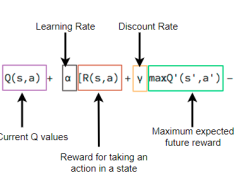Artificial General Intelligence (AGI) has long been a subject of fascination and speculation. Elon Musk, the renowned entrepreneur and innovator, believes that AGI could surpass human intelligence in the near future. While the timeline for this achievement remains uncertain, Musk predicts that it could happen as early as next year or by 2026.
In his venture, xAI, Musk is currently training the second version of its Grok large language model. This ambitious project has already required the use of an astounding number of processors. The training of Grok’s version 2 model utilized as many as 20,000 Nvidia H100 GPUs. Looking ahead, Musk envisions even greater resource requirements, with the Grok 3 model potentially needing around 100,000 Nvidia H100 chips for training.
However, the advancement of AGI technology faces significant challenges. Musk highlights two main obstacles: supply shortages of advanced processors, such as Nvidia’s H100, and the availability of electricity. Acquiring an immense quantity of 100,000 processors quickly is no small feat. Additionally, the power consumption of these processors is substantial. The Nvidia H100 GPU, for example, consumes approximately 700W when fully utilized. Therefore, training AI models with 100,000 GPUs could consume a staggering 70 megawatts of power. When factoring in the necessary servers and cooling systems, a datacenter housing these processors could consume around 100 megawatts of power, equivalent to that of a small city.
Musk acknowledges the need for reliable access to advanced processors and a robust electricity supply to overcome these challenges. The implications of AGI becoming more intelligent than humans are profound. With greater intelligence, AGI could potentially contribute to solving complex problems and offer groundbreaking insights across various fields.
While these developments open up remarkable possibilities, new challenges will inevitably arise. As AGI progress continues, questions about ethics, control, and the impact on society will require careful consideration. Preparing for a future where AGI surpasses human intelligence is not just a technological endeavor but a societal one as well.
FAQ
What is AGI?
AGI refers to Artificial General Intelligence, which encompasses machines that possess intellectual capabilities comparable to or exceeding human intelligence across various domains.
What are the challenges in developing AGI?
Developing AGI entails overcoming obstacles such as acquiring advanced processors, managing power consumption, and ensuring an adequate electricity supply to sustain the training and operation of these intelligent systems.
What are the potential implications of AGI surpassing human intelligence?
When AGI surpasses human intelligence, it could lead to advancements in problem-solving, offer innovative perspectives, and reshape various industries. However, it also raises profound ethical and societal questions that need to be addressed.
What considerations are necessary for the future of AGI?
As AGI development progresses, it is important to reflect on ethical implications, establish control mechanisms, and assess the potential societal impact. A comprehensive approach that considers both the technological and societal aspects is essential for a responsible and beneficial integration of AGI into our world.
Sources:
– Article: [Titans of Tech](https://www.titansoftech.com)
– Interview: [X Spaces](https://www.xspaces.io)
Artificial General Intelligence (AGI) is a rapidly evolving field with the potential to surpass human intelligence in the near future. Elon Musk, the well-known entrepreneur and innovator, is leading the way with his venture, xAI. Musk’s project involves training the second version of its Grok large language model, which has already required an astonishing number of processors.
To achieve the ambitions of AGI, Musk has utilized as many as 20,000 Nvidia H100 GPUs in the training of Grok’s version 2 model. Looking ahead, Musk envisions even greater resource requirements, with the Grok 3 model potentially needing around 100,000 Nvidia H100 chips for training. However, this advancement in AGI technology is not without its challenges.
One of the main obstacles highlighted by Musk is the supply shortages of advanced processors like Nvidia’s H100. Acquiring such a massive quantity of 100,000 processors quickly is no easy task. Additionally, the power consumption of these processors is substantial, with each Nvidia H100 GPU consuming approximately 700W when fully utilized. Training AI models with 100,000 GPUs could result in a staggering power consumption of 70 megawatts. Taking into account the necessary servers and cooling systems, a datacenter housing these processors could consume around 100 megawatts of power, equivalent to that of a small city.
Reliable access to advanced processors and a robust electricity supply are crucial for overcoming these challenges. The implications of AGI surpassing human intelligence are immense. With greater intelligence, AGI could contribute to solving complex problems and provide groundbreaking insights in various fields.
However, new challenges will inevitably arise as AGI progresses. Questions concerning ethics, control, and the impact on society will require careful consideration. Preparing for a future in which AGI surpasses human intelligence is not solely a technological endeavor but a societal one as well.
FAQ
What is AGI?
AGI refers to Artificial General Intelligence, which encompasses machines that possess intellectual capabilities comparable to or exceeding human intelligence across various domains.
What are the challenges in developing AGI?
Developing AGI entails overcoming obstacles such as acquiring advanced processors, managing power consumption, and ensuring an adequate electricity supply to sustain the training and operation of these intelligent systems.
What are the potential implications of AGI surpassing human intelligence?
When AGI surpasses human intelligence, it could lead to advancements in problem-solving, offer innovative perspectives, and reshape various industries. However, it also raises profound ethical and societal questions that need to be addressed.
What considerations are necessary for the future of AGI?
As AGI development progresses, it is important to reflect on ethical implications, establish control mechanisms, and assess the potential societal impact. A comprehensive approach that considers both the technological and societal aspects is essential for a responsible and beneficial integration of AGI into our world.
Sources:
– Article: Titans of Tech
– Interview: X Spaces




